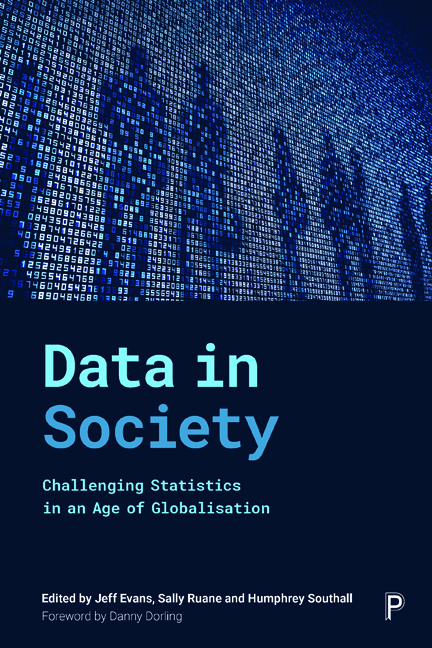Book contents
- Frontmatter
- Contents
- List of figures, tables and boxes
- Notes on contributors
- Foreword
- Preface
- General introduction
- Part I How data are changing
- Part II Counting in a globalised world
- Part III Statistics and the changing role of the state
- Part IV Economic life
- Part V Inequalities in health and wellbeing
- Part VI Advancing social progress through critical statistical literacy
- Epilogue: progressive ways ahead
- Index
27 - Critical statistical literacy and interactive data visualisations
Published online by Cambridge University Press: 30 April 2022
- Frontmatter
- Contents
- List of figures, tables and boxes
- Notes on contributors
- Foreword
- Preface
- General introduction
- Part I How data are changing
- Part II Counting in a globalised world
- Part III Statistics and the changing role of the state
- Part IV Economic life
- Part V Inequalities in health and wellbeing
- Part VI Advancing social progress through critical statistical literacy
- Epilogue: progressive ways ahead
- Index
Summary
Introduction: conceptions of statistical literacy
One can trace advocacy for what we might now call ‘critical statistical literacy’ (CSL) at least as far back as the eighteenth century. Writing early in the French Revolution, Condorcet (1792/1994) proposed the idea of savoir liberateur – knowledge about governance and social inequality that would engage citizens, and would motivate them to reconstruct society. Perhaps the most prominent recent advocate has been Hans Rosling (Rosling et al, 2018), the prime mover behind Gapminder.
We have been working on a project designed to promote ‘civic statistics’ in high school and undergraduate courses. It has produced a tool for analysing tasks, assessment systems and curricula in terms of the coverage of critical statistical literacy (Ridgway et al, 2018). Eleven key facets of civic statistics have been identified: many of these are omitted from conventional courses (such as critical evaluation and reflection, disposition to engage, fluency with Information and Communications Technology (ICT), and extensions in official statistics). The most important facet is meaning for social policy; this facet calls on all the others. It reflects an ability to propose an evidence-informed approach to some pressing social problem. Any proposal will involve critical analysis of available evidence; sources, the nature of the data collected, and its likely robustness; notions of risk; probabilities, utilities, costs and the like; and consideration of possible unintended consequences. For the purposes of this chapter, we largely focus on two facets: contextual civic knowledge, and ICT and search.
Contextual civic knowledge is essential to debates on social issues. In order to model any phenomenon, one needs a good understanding of the context in which it is set. Is ‘an extra £1 billion’ a lot or a little in the context of the National Health Service's annual budget? In the context of the annual allocation to social science research? Contextual civic knowledge includes facts such as sizes of populations, GDP (Gross Domestic Product), debt and deficit, and demographics. At a higher level, it includes an understanding of communication channels and governance. ICT and search refers to the need to be able to access data from the vast array that is available, and to work effectively with (and critique) the emerging plethora of interactive data visualisations (IDV).
Information
- Type
- Chapter
- Information
- Data in SocietyChallenging Statistics in an Age of Globalisation, pp. 349 - 358Publisher: Bristol University PressPrint publication year: 2019
